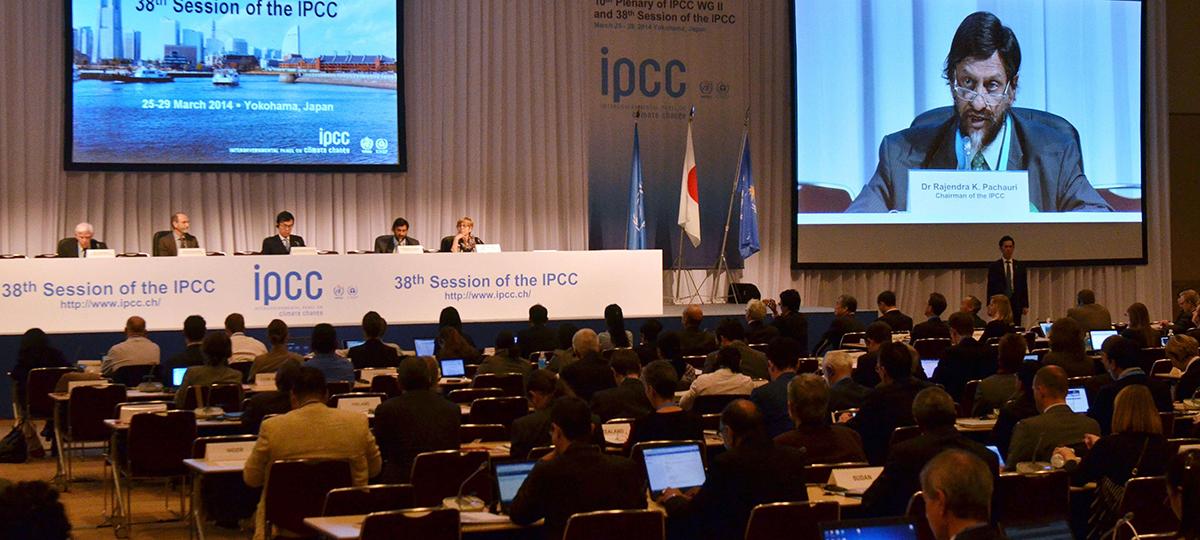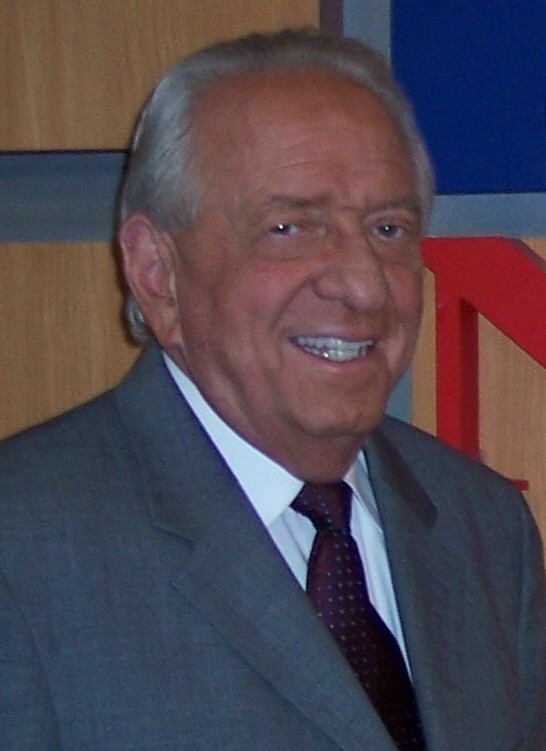- Dec 18, 2013
- 136,386
- 27,913
- 2,180
they are not scientific, there is that. Funny you think they are.I say again, you need to do more thinking before you post. What do you think the IPCC does?
Follow along with the video below to see how to install our site as a web app on your home screen.

Note: This feature currently requires accessing the site using the built-in Safari browser.
they are not scientific, there is that. Funny you think they are.I say again, you need to do more thinking before you post. What do you think the IPCC does?
They are, after all, very senior, very well-respected, hugely published and hugely cited scientists. Nothing here is funny, but what is abysmally ignorant is your view of them.they are not scientific, there is that. Funny you think they are.
No, the IPCC does not consist of scientists. Sorry bubba.They are, after all, very senior, very well-respected, hugely published and hugely cited scientists.

I was aware that the IPCC does not conduct science. They ASSESS science conducted by others. It is staffed with, and their reports are written by, very accomplished scientists. Why don't you go have a look at who makes up Working Group I for AR6.No, the IPCC does not consist of scientists. Sorry bubba.

The IPCC: Who Are They and Why Do Their Climate Reports Matter?
The Intergovernmental Panel on Climate Change (IPCC): Who Are They and Why Do Their Climate Reports Matter?www.ucsusa.org
IPCC history and mission
The Intergovernmental Panel on Climate Change (IPCC) was established in 1988 under the auspices of the United Nations Environment Programme and the World Meteorological Organization for the purpose of assessing “the scientific, technical and socioeconomic information relevant for the understanding of the risk of human-induced climate change. It does not carry out new research nor does it monitor climate-related data.
oh no, no, you said they are scientists. skating back to your corner yet again.I was aware that the IPCC does not conduct science. They ASSESS science conducted by others. It is staffed with, and their reports are written by, very accomplished scientists. Why don't you go have a look at who makes up Working Group I for AR6.

Open up any chapter within "The Physical Science Basis" and go to its end. There you will find a REFERENCES section listing the published science on which that chapter's material and conclusions are based. There is a reference section at the end of every chapter. For Chapter 7 (referenced recently for its discussion on ECS and TCR) the reference section goes from pg 1,026 to 1,054, 28 pages with roughly 40 listings on each page. Here is a sample page:I was aware that the IPCC does not conduct science. They ASSESS science conducted by others. It is staffed with, and their reports are written by, very accomplished scientists. Why don't you go have a look at who makes up Working Group I for AR6.
Did your Power Go Off during COVID's 1 bad year?So when Covid shut down the entire Earth's economies and vast numbers of people just stayed home? We of course saw a change in the CO2 levels? Right, Crick? Oh, wait...we didn't? Hmmmm...
So we need to shut down the entire planet for 3-5 years before we see drop of a few parts per million of CO2 in the atmosphere? Is that what you're claiming, Abu? You do realize that we're not going to see anything even remotely like that happening? That China, India and Brazil will continue to increase their burning of fossil fuels while the US destroys it's economy with a forced adoption of "green" energy? So how does that plan work to "save the planet"? (eye roll)Did your Power Go Off during COVID's 1 bad year?
Did you stop going to the Grocery store?
Did the Trucks stop bringing them food?
CO2 stays in atmosphere for Decades. It would take probably 3-5 yrs of much more shutdown to notice a drop in CO2 from 420PPM to ie 417PPM.
`
As for me? My driving was almost completely curtailed. I wasn't working. There weren't restaurants or movie theatres or bars open to socialize at. I was like the majority of people. I stayed home. The roads were empty. It was like that everywhere yet we saw no dip in CO2 levels! Why?Did your Power Go Off during COVID's 1 bad year?
Did you stop going to the Grocery store?
Did the Trucks stop bringing them food?
CO2 stays in atmosphere for Decades. It would take probably 3-5 yrs of much more shutdown to notice a drop in CO2 from 420PPM to ie 417PPM.
`
The problem is you are Stupid.As for me? My driving was almost completely curtailed. I wasn't working. There weren't restaurants or movie theatres or bars open to socialize at. I was like the majority of people. I stayed home. The roads were empty. It was like that everywhere yet we saw no dip in CO2 levels! Why?
Ok...you've pointed out that CO2 lasts a very long time. That has zero however to do with the levels of CO2 being produced. So if Covid shut down economies throughout the world with people not driving? Shouldn't we have seen much smaller increase in CO2 levels? So where was that, Abu? Should I capitalize that question to make it seem more intelligent? (eye roll)The problem is you are Stupid.
WAY stupid.
The problem for 90% of the people here.
Aside from what I've already explained.....
You ever hear of G O O G L E?
LOOK IT UP YOU EFFING DOPE. IT'S SO EASY THESE DAYS.
`
Because it has a long lifetime, what is currently in the air has builty up in over a century. During the worst of the pandemic, annual CO2 emissions dropped no more than 7% but that is a tiny amount compared to what it already in the atmosphere.Ok...you've pointed out that CO2 lasts a very long time. That has zero however to do with the levels of CO2 being produced. So if Covid shut down economies throughout the world with people not driving? Shouldn't we have seen much smaller increase in CO2 levels? So where was that, Abu? Should I capitalize that question to make it seem more intelligent? (eye roll)
Which of course means you're TOTALLY against the Paris Accord, right Crick? I mean if you're really against the burning of fossil fuels then why would you sign an accord that lets the three largest polluters continue to increase their levels of pollution while the US and Europe hamstring their Economies with strict green legislation?Because it has a long lifetime, what is currently in the air has builty up in over a century. During the worst of the pandemic, annual CO2 emissions dropped no more than 7% but that is a tiny amount compared to what it already in the atmosphere.
are written by, very accomplished
The problem is you are Stupid.
WAY stupid.
The problem for 90% of the people here.
Aside from what I've already explained.....
You ever hear of G O O G L E?
LOOK IT UP YOU EFFING DOPE. IT'S SO EASY THESE DAYS.
`
Which of course means you're TOTALLY against the Paris Accord, right Crick? I mean if you're really against the burning of fossil fuels then why would you sign an accord that lets the three largest polluters continue to increase their levels of pollution while the US and Europe hamstring their Economies with strict green legislation?
I will take progress of any size and nature.
The US is the second largest emitter.
The Paris Accords do not require any specific mitigating action by signatories .
So, read the text below and educate yourself.
From the Wikipedia article on "The Paris Agreement"
The Paris Agreement's long-term temperature goal is to keep the rise in mean global temperature to well below 2 °C (3.6 °F) above pre-industrial levels, and preferably limit the increase to 1.5 °C (2.7 °F), recognizing that this would substantially reduce the effects of climate change. Emissions should be reduced as soon as possible and reach net-zero by the middle of the 21st century.[3] To stay below 1.5 °C of global warming, emissions need to be cut by roughly 50% by 2030. This is an aggregate of each country's nationally determined contributions.[4]
It aims to help countries adapt to climate change effects, and mobilize enough finance. Under the agreement, each country must determine, plan, and regularly report on its contributions. No mechanism forces a country to set specific emissions targets, but each target should go beyond previous targets. In contrast to the 1997 Kyoto Protocol, the distinction between developed and developing countries is blurred, so that the latter also have to submit plans for emission reductions.
The agreement was lauded by world leaders, but criticized as insufficiently binding by some environmentalists and analysts. There is debate about the effectiveness of the agreement. While current pledges under the Paris Agreement are insufficient for reaching the set temperature goals, there is a mechanism of increased ambition. The Paris Agreement has been successfully used in climate litigation forcing countries and an oil company to strengthen climate action. On 4 July 2022, the Supreme Federal Court of Brazil recognized the Paris agreement as a human rights treaty.[5][6]
Nationally determined contributions
Countries determine themselves what contributions they should make to achieve the aims of the treaty. As such, these plans are called nationally determined contributions (NDCs).[54] Article 3 requires NDCs to be "ambitious efforts" towards "achieving the purpose of this Agreement" and to "represent a progression over time".[54] The contributions should be set every five years and are to be registered by the UNFCCC Secretariat.[55] Each further ambition should be more ambitious than the previous one, known as the principle of 'progression'.[56] Countries can cooperate and pool their nationally determined contributions. The Intended Nationally Determined Contributions pledged during the 2015 Climate Change Conference are converted to NDCs when a country ratifies the Paris Agreement, unless they submit an update.[57][58]
The Paris Agreement does not prescribe the exact nature of the NDCs. At a minimum, they should contain mitigation provisions, but they may also contain pledges on adaptation, finance, technology transfer, capacity building and transparency.[59] Some of the pledges in the NDCs are unconditional, but others are conditional on outside factors such as getting finance and technical support, the ambition from other parties or the details of rules of the Paris Agreement that are yet to be set. Most NDCs have a conditional component.[60]
While the NDCs themselves are not binding, the procedures surrounding them are. These procedures include the obligation to prepare, communicate and maintain successive NDCs, set a new one every five years, and provide information about the implementation.[61] There is no mechanism to force[62] a country to set a NDC target by a specific date, nor to meet their targets.[63][64] There will be only a name and shame system[65] or as János Pásztor, the former U.N. assistant secretary-general on climate change, stated, a "name and encourage" plan.[66]
You seem to be ignoring the meaning of the word "specific". It DOES require each signer to produce a nationally determined contribution. What sort of enforcement mechanism would you liked to have seen?The Paris Accords do not require any specific mitigating action by signatories .
A virtue signaling waste of time? LOL!
You seem to be ignoring the meaning of the word "specific". It DOES require each signer to produce a nationally determined contribution. What sort of enforcement mechanism would you liked to have seen?
Naming and shaming. What is the punishment for driving a car that produces a lot of CO2?It DOES require each signer to produce a nationally determined contribution.
What is the punishment for not producing it?